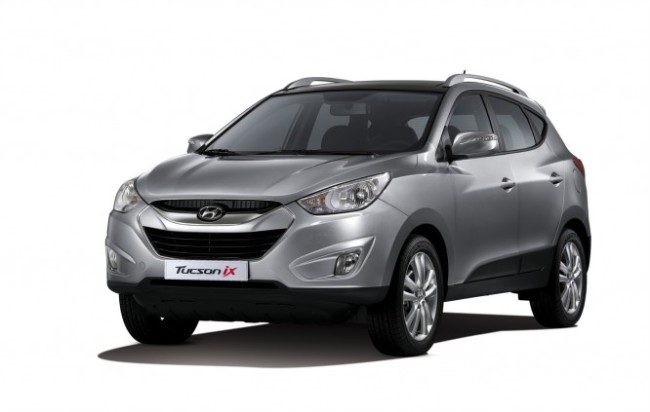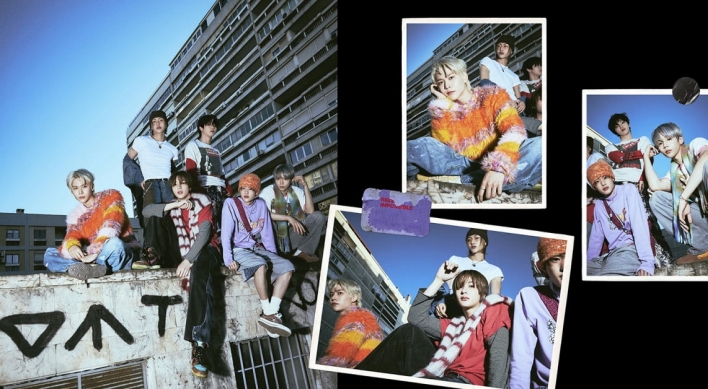지난주 세종시 국토부 자동차운영과에서는 현대모비스 관계자들과 해당 공무원이 에어백 자기인증을 놓고 실랑이를 벌였다. 분위기가 험악했지만 모비스 측에서는 정부와의 관계에 아무 문제가 없다며 관련 사항을 부인하고 있다.
하지만 현대차그룹이 최근 대체부품제와 저탄소협력금제 등을 두고 정부와 대립 각을 세우고 있는 점을 봤을 때 현대차 계열사들과 정부간의 분위기가 심상치 않아 보이는 것이 사실이다.
국외에서도 미국이 GM의 에어백결함 은폐 이후 관련 조사를 전체 자동차메이커로 확대할 예정이라 어느 때보다 정부의 지원과 협조가 필요하지만 기대하기 어려운 상황이다.
GM의 에어백결함 은폐 이후 미국 정부는 관련조사를 현대차를 비롯해 전체 자동차메이커로 확대할 예정이고 국내에서는 이르면 내년부터 시행 예정인 대체부품제와 저탄소협력금제 등에 대한 논란이 끊이지 않고 있다.

당장 26일 국토부는 현대 싼타페의 연비과장 의혹에 대한 자체 조사 결과를 발표할 예정이다. 업계에서는 현대차가 법적 허용오차인 5%를 넘겨 10억원의 과징금을 피할 수 없을 것으로 예상하고 있고 일부 소비자들은 이미 집단소송을 진행 중이다.
한 업계관계자는 “2년 전 미국에서 연비과장 논란이 있었을 때 국토부가 현대기아차를 적극 수호했었던 것과는 대조적”이라며 “최근 정부와 현대기아차가 여러 이슈들로 대립각을 세우고 있는 것이 주요 원인”이라고 말했다.
2012년 현대기아차는 미국에서 13개 모델의 연비 과장으로 집단소송을 당해 약 1백만명에게 천억원을 보상하겠다고 발표한바 있다. 연비표기가 신고제인 미국과 달리 인증제를 채택하고 있는 한국에서는 이들 차량들이 이미 정부의 관련 검증시험을 통과 이후 출시됐기 때문에 특별한 보상이 없었다.
뿐만 아니라 정부는 현대 투싼ix의 에어백결함문제에 대한 조사도 계속해서 진행 중이다. 현대차는 이미 에어백이 운전대의 경음기 커버에 제대로 고정돼지 않은 점을 발견하고 미국과 국내에서 각 14만대, 12만2천여대를 자발적으로 리콜했지만 국토부는 센서 등 다른 원인이 있는지에 대해 확인하고 있다.
투싼에 들어가는 에어백의 경우 오토리브라는 미국 업체가 공급하고 있지만 만약 보다 복합적이고 치명적인 원인이 밝혀진다면 투싼의 글로벌판매와 현대차의 브랜드 신뢰도에도 부정적인 영향을 미칠 것으로 보인다. 지난해 투싼의 국내생산량은 18만대였고 이 중 4만여대가 미국으로 수출됐다.
다른 관계자 역시 “대체부품제와 탄소세 등에 대해 현대기아차가 어떤 형식으로든 양보하지 않는다면 정부의 압박은 더욱 거세질 것”이라고 예상했다.
대체부품제의 경우 순정부품 뿐 아니라 저렴한 대체부품 사용을 인정해 관련 중소기업도 활성화 시키겠다는 것이 정부의 취지이지만 국내외 자동차 제조업체들은 검증안된 부품들이 안전에 영향을 미칠 수 있다며 적극 반대 의사를 펼치고 있다. 물론 AS 등 회사들의 수익감소도 불가피할 것으로 보인다.
탄소세는 연비기술이 좋은 일본이나 유럽차들은 환영하고 있는 반면 상대적으로 가솔린모델 판매가 많은 현대기아차 등 국산업체 및 미국브랜드들은 반대하는 입장이다.
한 업계 관계자는 “대체부품제와 탄소세 모두 그 효과가 실질적으로 확인 된 것이 없다”며 “정부가 명분만 내세워 업계를 압박하고 있지만 현대차의 지원이 없다면 정부로서도 강행처리가 어려울 것”이라며 국토부, 산업부, 환경부 등 관련 정부부처들의 주도권싸움을 비판하기도 했다.
<관련 영문기사>
Korea, U.S. pressure Hyundai
Carmaker may be forced to concede on replacement parts, low-carbon cooperation
Recent comments from the Transport Ministry about an ongoing safety probe could have Hyundai Motor officials shifting in their seats.
“If the investigation turns out to have substance, it could affect Hyundai Motor Group’s exports,” said Kim Ki-hwan, an official of the Transport Ministry’s motor vehicles management division.
A negative finding could be devastating for the nation’s dominant carmaker, which relies on exports for the vast majority of its sales.
The investigation Kim was referring to has been carried out by his ministry for a while, but was only recently announced. It involves faulty air bags in Hyundai’s signature SUV Tucson ix. Hyundai manufactures the vehicle ― just under 180,000 units annually ― to sell in the U.S.
In May, Hyundai Motor recalled Tucson cars here and in the U.S. after an air bag fault led to the death of a driver last year. The air bags were manufactured by Autoliv, but Hyundai was involved in the testing and installation.
“All of the final tests and tuning (on the air bags) are conducted at Hyundai,” said a source close to the matter.
Though it may be a coincidence, the confirmation of this probe came just days after the U.S. National Highway Traffic Safety Administration said it was considering reviewing all major automakers, including Hyundai, for air bag and ignition switch problems following recent recalls from General Motors.
This means Hyundai may face more export problems. Last year, up to 7.56 million Hyundai and Kia cars were sold abroad, compared with the 1 million sold in Korea.
Further upping the pressure, the Transport Ministry will be announcing the results of an investigation into whether the automaker overstated the fuel economy of its Santa Fe vehicles on June 26.
“We all thought it was long overdue,” said another industry watcher.
Hyundai Motor has already admitted to exaggerating fuel economy, but no punitive action had been taken until now.
Hyundai might normally expect more understanding from the Korean government, but with the U.S. taking such a firm line and faults in Hyundai products confirmed, Seoul appears to be getting tough.
Not to mention that the Korean government has a few concessions of its own that it wants to milk from Hyundai while it is in a difficult position.
Competition on replacement parts, which is quite prevalent overseas, is one thing Seoul wants to introduce.
If brought in, customers will be able to choose between parts supplied by the car manufacturer or those from other firms, which are usually cheaper.
Currently in South Korea, all parts are provided by the carmaker. The upside is that consumers get good warranties and quality assurance. The downside is they pay more.
The Transport Ministry wants Hyundai to open up to the new system to reduce the firms reliance on Hyundai Mobis. Continental and Bosch also supply Hyundai, but the bigger contracts go to Mobis.
Hyundai argues that alternative car parts would compromise quality, and that it the benefits would go to foreign firms rather than domestic suppliers.
The Environment Ministry also wants more cooperation from Hyundai on low-emission vehicles. It wants to discourage customers from purchasing gas-guzzling cars with monetary disincentives. Hyundai is not keen on this, as its reputation is weaker on diesel cars than gasoline models, and its cars are mostly designed to please Koreans who prefer big vehicles.
Hyundai also fears that if the system is introduced, European carmakers ― which have a wider lineup of diesel and compact vehicles ― would gain a competitive advantage.
By Lee Ji-yoon, Bae Ji-sook and Park Han-na (jylee@heraldcorp.com) (baejisook@heraldcorp.com) (hnpark@heraldcorp.com)
Korea, U.S. pressure Hyundai
Carmaker may be forced to concede on replacement parts, low-carbon cooperation
Recent comments from the Transport Ministry about an ongoing safety probe could have Hyundai Motor officials shifting in their seats.
“If the investigation turns out to have substance, it could affect Hyundai Motor Group’s exports,” said Kim Ki-hwan, an official of the Transport Ministry’s motor vehicles management division.
A negative finding could be devastating for the nation’s dominant carmaker, which relies on exports for the vast majority of its sales.
The investigation Kim was referring to has been carried out by his ministry for a while, but was only recently announced. It involves faulty air bags in Hyundai’s signature SUV Tucson ix. Hyundai manufactures the vehicle ― just under 180,000 units annually ― to sell in the U.S.
In May, Hyundai Motor recalled Tucson cars here and in the U.S. after an air bag fault led to the death of a driver last year. The air bags were manufactured by Autoliv, but Hyundai was involved in the testing and installation.
“All of the final tests and tuning (on the air bags) are conducted at Hyundai,” said a source close to the matter.
Though it may be a coincidence, the confirmation of this probe came just days after the U.S. National Highway Traffic Safety Administration said it was considering reviewing all major automakers, including Hyundai, for air bag and ignition switch problems following recent recalls from General Motors.
This means Hyundai may face more export problems. Last year, up to 7.56 million Hyundai and Kia cars were sold abroad, compared with the 1 million sold in Korea.
Further upping the pressure, the Transport Ministry will be announcing the results of an investigation into whether the automaker overstated the fuel economy of its Santa Fe vehicles on June 26.
“We all thought it was long overdue,” said another industry watcher.
Hyundai Motor has already admitted to exaggerating fuel economy, but no punitive action had been taken until now.
Hyundai might normally expect more understanding from the Korean government, but with the U.S. taking such a firm line and faults in Hyundai products confirmed, Seoul appears to be getting tough.
Not to mention that the Korean government has a few concessions of its own that it wants to milk from Hyundai while it is in a difficult position.
Competition on replacement parts, which is quite prevalent overseas, is one thing Seoul wants to introduce.
If brought in, customers will be able to choose between parts supplied by the car manufacturer or those from other firms, which are usually cheaper.
Currently in South Korea, all parts are provided by the carmaker. The upside is that consumers get good warranties and quality assurance. The downside is they pay more.
The Transport Ministry wants Hyundai to open up to the new system to reduce the firms reliance on Hyundai Mobis. Continental and Bosch also supply Hyundai, but the bigger contracts go to Mobis.
Hyundai argues that alternative car parts would compromise quality, and that it the benefits would go to foreign firms rather than domestic suppliers.
The Environment Ministry also wants more cooperation from Hyundai on low-emission vehicles. It wants to discourage customers from purchasing gas-guzzling cars with monetary disincentives. Hyundai is not keen on this, as its reputation is weaker on diesel cars than gasoline models, and its cars are mostly designed to please Koreans who prefer big vehicles.
Hyundai also fears that if the system is introduced, European carmakers ― which have a wider lineup of diesel and compact vehicles ― would gain a competitive advantage.
By Lee Ji-yoon, Bae Ji-sook and Park Han-na (jylee@heraldcorp.com) (baejisook@heraldcorp.com) (hnpark@heraldcorp.com)








![[New faces of Assembly] Architect behind ‘audacious initiative’ believes in denuclearized North Korea](http://res.heraldm.com/phpwas/restmb_idxmake.php?idx=644&simg=/content/image/2024/05/01/20240501050627_0.jpg&u=20240502093000)









![[Today’s K-pop] Sunmi to drop single next month](http://res.heraldm.com/phpwas/restmb_idxmake.php?idx=642&simg=/content/image/2024/05/03/20240503050545_0.jpg&u=)